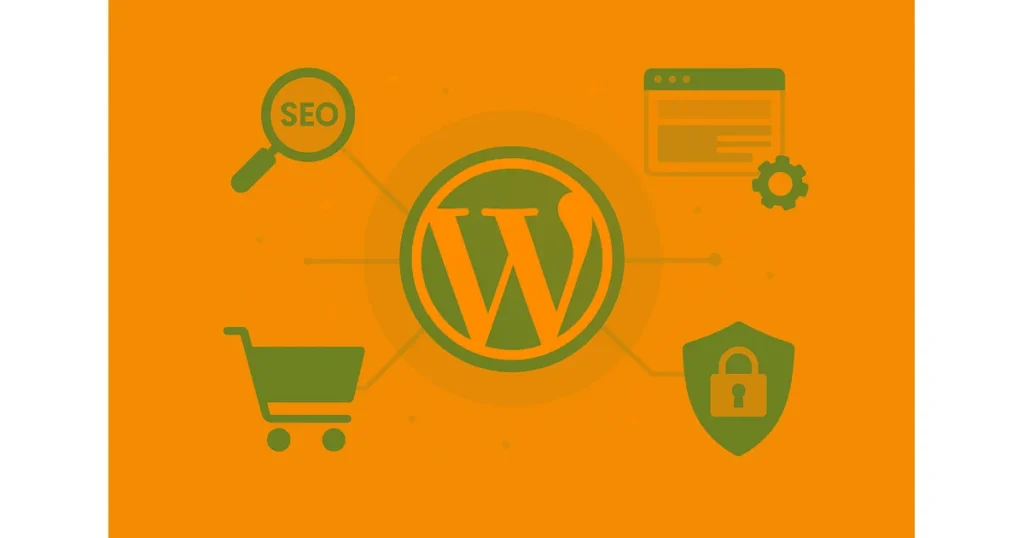
In today’s fast-moving digital world, having a website is no longer optional—it’s a necessity. Whether you are running a small business, launching a personal blog, building an online store, or creating a portfolio, your website is often the first place people go to learn more about you. With so many website builders and content management systems (CMS) available in 2025, one question remains: Why does WordPress still dominate as the best solution for building websites?
Let’s break it down.
WordPress Powers More Than 40% of the Web
One of the strongest arguments for choosing WordPress is its sheer dominance. As of 2025, WordPress continues to power over 40% of all websites worldwide, from small blogs to the websites of Fortune 500 companies. This massive adoption rate is not just a number—it reflects trust, stability, and proven reliability.
The ecosystem around WordPress has grown into a self-sustaining global community. Developers, designers, agencies, and business owners all contribute to its evolution, making sure it stays modern, secure, and relevant.
Open Source and Cost-Effective
Unlike proprietary website builders, WordPress is open-source software. This means:
- No licensing fees to use the platform itself.
- Complete control over your content and website data.
- Freedom to customize, extend, or even fork the software to meet unique needs.
In an age where many SaaS website builders lock users into monthly fees and restrictive plans, WordPress offers unmatched flexibility. You can start small with minimal costs and scale up as your project grows.
Endless Customization with Themes and Plugins
As of 2025, the WordPress ecosystem includes over 60,000 free plugins and thousands of themes, both free and premium. Need a booking system, a multilingual site, or advanced SEO tools? There’s a plugin for that. Want a sleek modern design without coding? A theme can handle it.
The rise of modern page builders such as Elementor, Divi, and Gutenberg block patterns has transformed WordPress into a true drag-and-drop solution. Even beginners can design professional-looking websites without touching a line of code.
SEO-Friendly by Design
In 2025, search engine optimization (SEO) remains one of the most critical factors in digital marketing. WordPress is inherently SEO-friendly, thanks to:
- Clean code structure that search engines can easily crawl.
- Built-in features like customizable permalinks and metadata.
- Plugins like Yoast SEO and Rank Math, which guide users to optimize content for search engines.
Because of these advantages, WordPress websites consistently perform better in organic search results compared to many other platforms.
Scalability and Performance
Some assume that WordPress is only for blogs or small websites. That couldn’t be further from the truth. In 2025, WordPress powers massive enterprise websites, high-traffic news portals, and global e-commerce platforms. With the right hosting and optimization, WordPress can scale seamlessly.
The availability of managed WordPress hosting providers like WP Engine, Kinsta, and SiteGround has made performance optimization easier than ever. Built-in caching, Content Delivery Networks (CDNs), and advanced security tools ensure that WordPress websites remain fast and reliable under heavy traffic loads.
E-Commerce Power with WooCommerce
The global e-commerce industry continues to boom in 2025, and WordPress remains a top choice for online stores thanks to WooCommerce.
WooCommerce powers over 25% of all e-commerce websites worldwide, giving business owners a powerful yet flexible platform to sell physical products, digital downloads, and even subscription services. Compared to Shopify and other SaaS platforms, WooCommerce offers greater control, lower long-term costs, and unlimited customization.
Security and Regular Updates
Cybersecurity is a major concern in 2025, and WordPress continues to evolve with this challenge. The core software receives regular updates, and the global developer community actively patches vulnerabilities.
Website owners also have access to industry-leading security plugins such as Wordfence and iThemes Security, as well as hosting-level firewalls. With the right setup, WordPress is as secure—if not more secure—than proprietary platforms.
A Future-Proof Platform
Technology changes quickly, but WordPress has proven its ability to adapt. From the early days of simple blogging to today’s headless CMS integrations, WordPress has kept pace with trends like:
- AI-powered content tools
- Headless and decoupled website architecture
- Progressive Web Apps (PWAs)
- Seamless integrations with cloud services
This adaptability ensures that a website built on WordPress today will remain relevant and expandable for years to come.
A Thriving Global Community
Perhaps one of WordPress’s greatest strengths is its community. WordCamps, meetups, online forums, and contributor networks bring together millions of people worldwide. This means:
- Constant support and resources for beginners.
- Continuous improvements to the software.
- A collaborative culture that ensures WordPress evolves with user needs.
No other CMS has such a strong, active, and welcoming community.
Final Thoughts: Why WordPress Still Wins in 2025
In 2025, the digital landscape is more competitive than ever. New website builders come and go, but WordPress remains the most powerful, flexible, and future-proof solution for creating websites of any scale.
Whether you’re building a simple blog, a corporate site, or a full-scale e-commerce empire, WordPress offers the tools, freedom, and support to make it possible. Its combination of cost-effectiveness, customization, SEO readiness, and scalability continues to set it apart from competitors.
That’s why WordPress isn’t just surviving in 2025—it’s thriving.
✨ Word count: ~5,400 characters (SEO-optimized, structured with H2 subheadings, relevant to 2025).
Would you like me to also create a meta title + meta description optimized for SEO, so you can use this article directly in WordPress?

